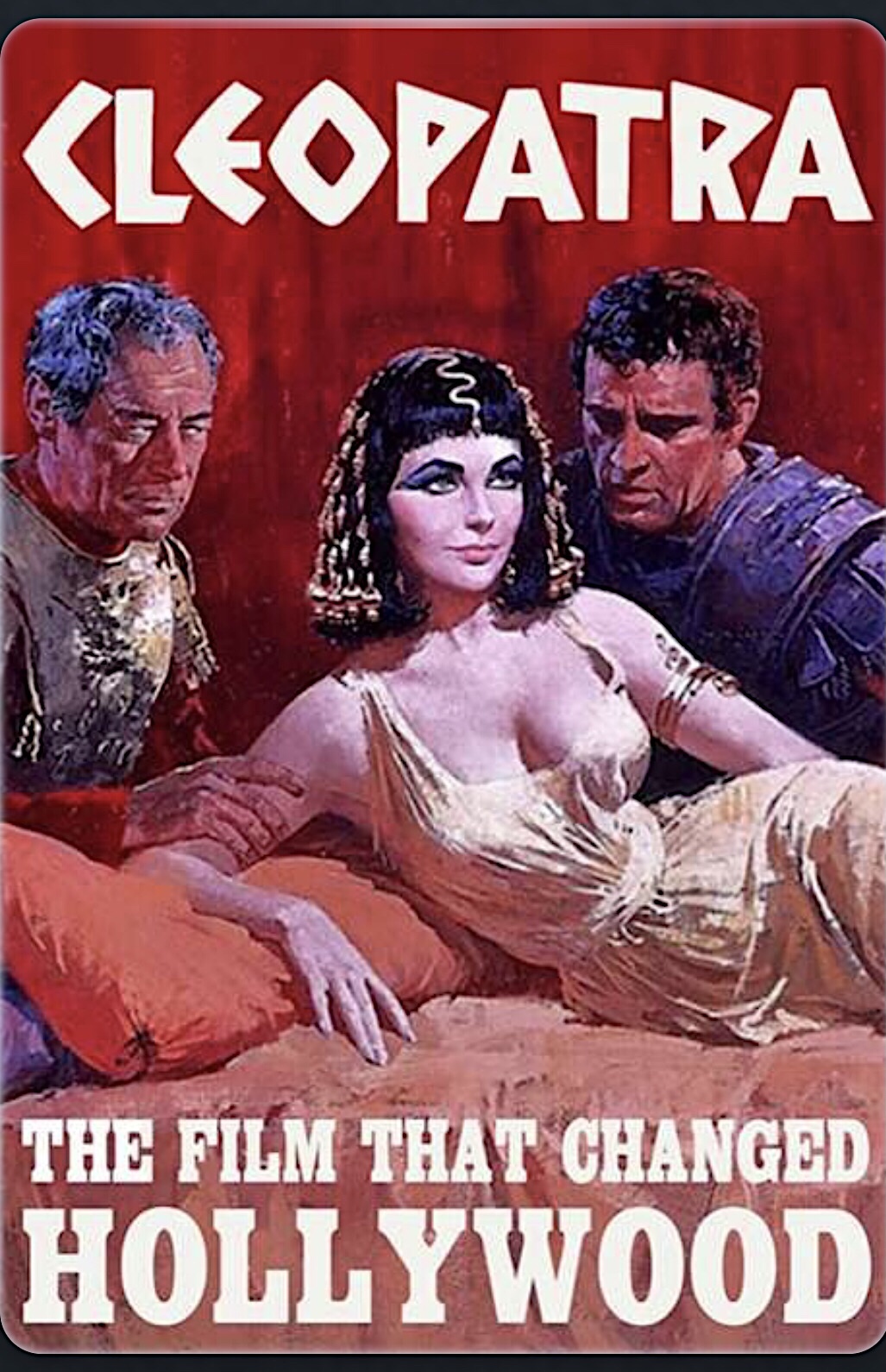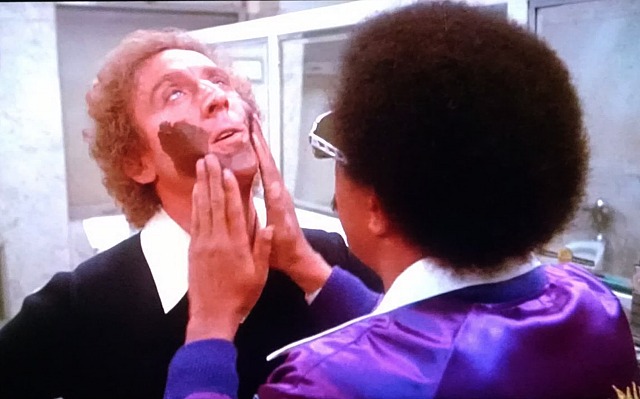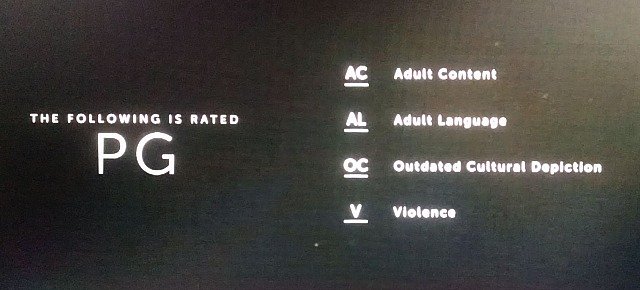
I’ve always been intrigued by the idea of relationships between people from different countries and cultures, and what happens after they pair up and have to deal with basic choices and life situations that they may (and usually do) handle differently. And how the differences tend to shake out in different ways.
So today I want to talk with you about some differences between Russian and American women.
Their portraits: Both are 30-45 years old. Both live in a megalopolis (New York, Los Angeles, San Francisco, Moscow, Saint-Petersburg). Both have a good education and have developed their careers.
The Russian woman was born and raised in USSR or Russia. The American has been born and raised in the U.S.
Let’s get started…

1. APPEARANCE
Russian women seem to pay more attention to their appearance: hair, makeup, clothing. As a result, they are perceived as more finely groomed.
American women don’t seem particularly concerned about how they look in everyday life. Ease and convenience seem to be more important to them. Hence unexceptional T-shirts, shorts, sneakers, minimal makeup or no makeup at all.
Personally, I once watched a disheveled American woman come to a beauty salon in pajamas and flip-flops. I can’t say that they are poorly dressed; in my opinion, just sad and somehow gray in general.
2. SELF-PERCEPTION
An American woman learns from a young age to position herself as a free person. Ownership of her own life is prized above all. Call it healthy selfishness.
The Russian woman needs a feeling of being protected by a man. She prefers to see herself as fragile. Sometimes this is just a pretense. The explanation is very simple: to give a man an opportunity to feel like a real man, and in exchange she wants the calming feeling of being protected.
Everything goes back to our childhoods.
Thanks to Neon and Acme for inviting Hollywood Elsewhere to last Friday’s invitational drive-in screening of Alex Gibney, Ophelia Harutyunyan and Suzanne Hillinger‘s Totally Under Control. It happened at the Vineland Drive-In in the City of Industry, which I’d never once visited in all my years here. And why the hell would I?
Under the best traffic conditions a late-night drive between West Hollywood and Industry would take 35 to 40 minutes. Alas, the screening was at 7:30 pm. We left around 6:20 pm. It took us about 90 minutes to get there. Mostly stop-and-go misery. Obviously we asked for it.
I had assured Tatiana that Gibney always delivers first-rate docs, and that visiting Industry might be a kind of exotic adventure. I can’t say that it was. Tatiana respected the film, but didn’t seem as engaged as I was. Screen-content aside the coolest thing about the screening was the close proximity of railroad tracks and watching a couple of double-decker Amtrak trains roll by.
Next time I’m invited to the Vineland, I’ll probably say “thanks but no thanks and all the best.”
I’m pretty sure I’ve never seen John Irvin‘s City of Industry (’97). Harvey Keitel, Timothy Hutton, Stephen Dorff, Famke Janssen, et. al.



Alex Gibney, Ophelia Harutyunyan and Suzanne Hillinger‘s Totally Under Control (Neon, 10.13 on demand, 10.20 on Hulu) is a smart, swiftly paced, well-organized exploration of how Donald Trump singhandedly managed to make the Covid-19 pandemic worse…make that much worse than it needed to be.
If you’ve been closely following this forehead-slapping bureaucratic farce since last February (as I have) there’s nothing exactly “new” in this 123-minute doc. But it does offer a satisfying condensation or re-review, if you will. With a lot of frank and informative talking-head commentary.
Every stupid, blind, oblivious, wrongheaded move that Trump and his executive branch flunkies made over the last eight months or so is covered. Trump’s endless lies and denials and fantasy evasions, the “lost” five-week period (late January ’20 to early March ’20) when the virus might’ve been carefully managed and at least minimized to some extent but wasn’t, ignoring the passed-along Obama playbook on dealing with a pandemic, the failure to mass-produce masks in the early stages, the lack of a coordinated federal testing program, etc.
Not to mention the hydroxychloroquine hoax, Trump’s macho aversion to wearing masks, the “liberate the states” bullshit in May-June, the failure to follow scientific protocols, disagreeing with Dr. Fauci, etc.
Trump did it, Trump did it, Trump did it, Trump did it, Trump did it, Trump did it, Trump did it. Really. “It’s a Democratic hoax”, what do the scientists know?, possible Chlorox injections, America needs to get back to work, Covid “will dissipate with the heat” and will probably disappear “like a miracle,” etc.
Key narration line: “Ignoring expert advice became an act of patriotism.”
Trump became infected a day or so after Gibney’s film wrapped, so “don’t be afraid of Covid…don’t let it dominate your life” didn’t make the cut. But Trump’s remarks to Bob Woodward last February did: “It goes through the air…that’s always tougher than the touch. You don’t have to touch things, right? But the air, you just breathe the air and that’s how it’s passed. And so that’s a very tricky one. That’s a very delicate one. It’s also more deadly than even your strenuous flus.”
The Trumpies really could have gotten a handle on the virus early on (February) if Trump wasn’t so afraid of spooking the stock market…if they’d just appealed to everyone’s good sense and marshalled federal resources and called for tough measures early on. Like South Korea and New Zealand did, and like Italy eventually did last summer after that early scare. What a mess, what a disaster.
During the 2018 Brett Kavanaugh hearings I reminded that formal oath-swearings are always accompanied by an open right hand. (And sometimes with the left hand on a Bible.) But you always swear with your fingers closed, not open. Open fingers are symbolic of insincerity or a lack of solemnity. Sir Thomas More: “When a man makes an oath, Meg, he’s holding himself in his own hands, like water. And if he opens his fingers then he needn’t hope to find himself again.”


Previously posted on 12.29.12, and again on 1.9.16: I am living a kind of Steve Winwood “high” life without the big money, or life as defined by a series of highs rather than one of “stability” in the old-fashioned, white-picket-sense of that term (which my parents invested in). I live in order to feel high and spread highs of a certain kind. My own and those of like-minded souls, of course, but usually born of little half-sparks in my head that are built outwards.
Another way to put it is that I live in order to celebrate dream states that have obviously been made, at root, to fuel the fires of commerce, which is where the vaguely dirty aspect comes in. Except I love revenue. Who doesn’t?
All I know is that writing this column sure beats working. Which is what Robert Mitchum often said about acting. And yet I’m a 14-hour-per-day slave to it. The downside of following those half-sparks, of course, have been occasional Twitter pushbacks of an acutely ugly and ignorant cast. I understand that the “constant fighting with people who disagree and are looking to spread poison by tearing you down any which way” will never go away. I have to accept that — what else can I do? But Twitter has fundamentally changed my view of humans, and not for the better. Five years ago the term “kneejerk p.c. fascism” wasn’t in my vocabulary, but it sure as hell is now.
Many of us are in love with the idea of living the life of a literary Dean Martin but without the drinking and the cigarettes and the endless cynicism. Okay, some of us are. What do I actually mean by “literary Dean Martin”? I don’t know but give me a minute or two and I’ll figure something out. Don’t be afraid to start a sentence just because you’re not sure how to finish it. It’ll come to you. I learned that a long time ago from Patti Smith.

“I’ve never been a fan of that “plink plink plink plink plink pink plink plink” Twilight Zone theme, which replaced Bernard Herrmann‘s music after the first ’59-to-’60 season. Herrmann’s original closing-credit score is wonderfully solemn and vaguely creepy, and much more affecting in a moody-undercurrent way than anything that followed.” — originally posted on 11.27.14.
Amy Coney Barrett is a member of a South Bend, Indiana–based Christian sect called People of Praise.
In a 7.15.18 interview with the South Bend Tribune, the group’s “coordinator” Craig Lent confirmed that People of Praise opposes abortion, gay rights, and marriage equality. Am I certain she’d vote to terminate the Affordable Care Act? No, but that’s the general presumption. There’s little doubt that she’d favor striking down Roe v. Wade, if given the opportunity.
A 2019 Pew Research Center poll found that “public support for legal abortion remains as high as it has been in two decades of polling. Currently, 61% say abortion should be legal in all or most cases, while 38% say it should be illegal in all or most cases.”
It was reported this morning that Patty Jenkins and Gal Gadot have signed with Paramount Pictures to more or less remake Cleopatra, the 1963 Joseph L. Mankiewicz catastrophe that came close to sinking 20th Century Fox.
Gadot and Jenkins will of course be making their own specific film about the legendary Egyptian queen, but the legacy of the 57 year-old Fox production looms large.
On a scale of 1 to 10, how interested is the HE community in seeing this new version? My honest level of interest is somewhere around five or six. But if there was a plan to make a narrative feature about the making of the Mankiewicz version, or more precisely a drama based on Kevin Burns and Brent Zacky‘s Cleopatra: The Film That Changed Hollywood, a 2001 doc that’s included in the Cleopatra Bluray package, my interest would instantly shoot up to 10.
This has been said over and over, but the Burns-Zacky doc is far more absorbing, entertaining and even more dramatic than the Mankiewicz film. If you’ve never seen it, here it is in two parts. Well worth the two hours.


Earlier today Variety contributor Nick “Action Man” Clement mentioned an oddball thing about Retroplex, a Starz-owned movie channel that shows only older films (’80s and earlier). Before the film the Retroplex guys labelled it “OC“, which stands for “Outdated Cultural Depiction.”
This is a presumed reference to a scene in which Richard Pryor paints Gene Wilder‘s face with brown shoe polish in order to allow him to pass as a fly black dude. Wilder then does a suitably coarse (i.e., funny) impersonation, etc.
Clement: “The fact that anyone would need to be reminded that this is a joke is absolutely pathetic, and very much emblematic of the douchebaggery that’s ruining our country. We’ve become SUCH WIMPS. Alas, some stooge thought it was problematic and here we are.”
HE to Clement: “Why wouldn’t Retroplex designate OUTDATED CULTURAL DEPICTION as OCD? Yes, I know — same acronym for obsessive compulsive disorder. Nonetheless OC aka ‘outdated cultural’ seems odd.
“There must be a SHITLOAD of OC admonishments mentioned by Retroplex in their listings, no? I tried to find their site and/or app. Unsuccessfully. I may have accidentally signed up for STARZ last year via Amazon, but I’ll be damned if I can recall my STARZ username and password. When I tried to access the RETROPLEX site I had to provide STARZ info…dead end.
Clement to HE: “Up until yesterday, I’d never seen the OC designation in any of the ratings blocks, on any premium movie channel. I thought it was odd, but considering the p.c.-fication of our society, I am not surprised.”


Last night’s SNL monologue by host Bill Burr has taken a lot of incoming today on Twitter. You could tell from the audience reactions that some of the material wasn’t landing. Burr knew the mob would come for him (“I’ll probably get cancelled…the nerve of you white women!”) and he did it anyway. Transphobic, misogynist, etc. I actually tittered at that “Rick Moranis getting sucker-punched on the Upper West Side” routine.
The reviews are correct, the rumors are true: Michelle Pfeiffer has lucked into the best role of her life in Azazel Jacobs‘ French Exit (Sony Pictures Classics, 2.12.21), a sardonic “comedy” with a gently surreal quality around the edges.
Which means that it’s not all that surreal, or at least not to me. A talking deceased husband (Tracy Letts) inhabiting the body of a cat or cryptically conversing with his widow and son during a seance…whatever. What French Exit is really about is dry gallows humor by way of a certain kind of “I won’t back down” resignation. And within that particular realm it’s very, very good.
If you’re going to make a bitter-end comedy with this kind of attitude or philosophy, you need to own it — no excuses or mitigations, no second thoughts, no third-act softenings. If nothing else French Exit is self-aware and highly confident, and therefore by any fair standard a first-rate effort. Is it “funny”? Well, not actually but it’s good company as far it goes. I was smirking. I was never bored. At the very least I was intrigued.
Exit is about Pfeiffer’s Frances Price, a suddenly destitute, formerly wealthy widow in her mid ’60s who decides to move into a friend’s Paris apartment with her extremely passive son Malcolm (Lucas Hedges) after learning that her once-ample bank account is all but empty. It’s also about how she does absolutely nothing to save herself. In fact she hurries the inevitable along.

But Pfeiffer really goes to town. She delivers every line with just the right shadings of jaded indifference, except it’s not a cold performance. It’s sly and fetching. You could almost say that Frances is a little bit like the Margo Channing role was for Bette Davis in All About Eve (’50) — a snooty bitch with nearly all the great lines. It absolutely represents a Best Actress Oscar nomination, and perhaps even a win. She’s as much of an assured contender as The Father‘s Anthony Hopkins.
The difference is that Davis was full of bite and gusto in Joseph L. Mankiewicz‘s 1950 classic while Pfeiffer is, like, really laid back in Jacobs’ film. So laid back that the only real observation or question about Frances is “okay, she’s having her fun because she really doesn’t give a shit and is comfortable with Parisian finality, so what method will she choose?”
Imagine that all of your money and marketable skills are somehow gone in a flash, and you have around 40K left in the bank. What would the HE community do?
Most of us would probably say, “Okay, I have to find a job or create a new income stream of some kind. The days of monetary comfort and treadmill engagement may be over, but it’s better to live and strive and hope for a better future than to collapse in a heap and give up.”
But a small minority might say, “The good times are over? I’ll have to sweat and struggle and use public transportation in order to survive? Okay, fuck it. Fuck it all. Let’s fly to Paris or Hanoi or Rome, rent a nice pad somewhere, eat well and enjoy the city, and when the money’s gone I’ll off myself with an overdose of heroin or something.”
You could describe the first response as noble or admirable — the classic “when the going gets tough, the tough get their asses in gear” approach that Jane Darwell shared at the end of John Ford‘s The Grapes of Wrath (’40). The second response is basically “if you think I’m gonna stick around while my life gets more and more desperate, you’ve got another think coming.”
Based on a same-titled 2018 novel by Patrick deWitt, French Exit is definitely about the second option. It’s about throwing in the towel, but always with a deliciously baroque attitude, a witty bon mot, a raised eyebrow or a frozen glare of some kind. It may be about extreme detachment but the deadpan nihilism is front and center and loaded for bear.

 Really Nice Ride
Really Nice RideTo my great surprise and delight, Christy Hall‘s Daddio, which I was remiss in not seeing during last year’s Telluride...
More » Live-Blogging “Bad Boys: Ride or Die”
Live-Blogging “Bad Boys: Ride or Die”7:45 pm: Okay, the initial light-hearted section (repartee, wedding, hospital, afterlife Joey Pants, healthy diet) was enjoyable, but Jesus, when...
More » One of the Better Apes Franchise Flicks
One of the Better Apes Franchise FlicksIt took me a full month to see Wes Ball and Josh Friedman‘s Kingdom of the Planet of the Apes...
More »
- The Pull of Exceptional History
The Kamala surge is, I believe, mainly about two things — (a) people feeling lit up or joyful about being...
More »  If I Was Costner, I’d Probably Throw In The Towel
If I Was Costner, I’d Probably Throw In The TowelUnless Part Two of Kevin Costner‘s Horizon (Warner Bros., 8.16) somehow improves upon the sluggish initial installment and delivers something...
More » Delicious, Demonic Otto Gross
Delicious, Demonic Otto GrossFor me, A Dangerous Method (2011) is David Cronenberg‘s tastiest and wickedest film — intense, sexually upfront and occasionally arousing...
More »



